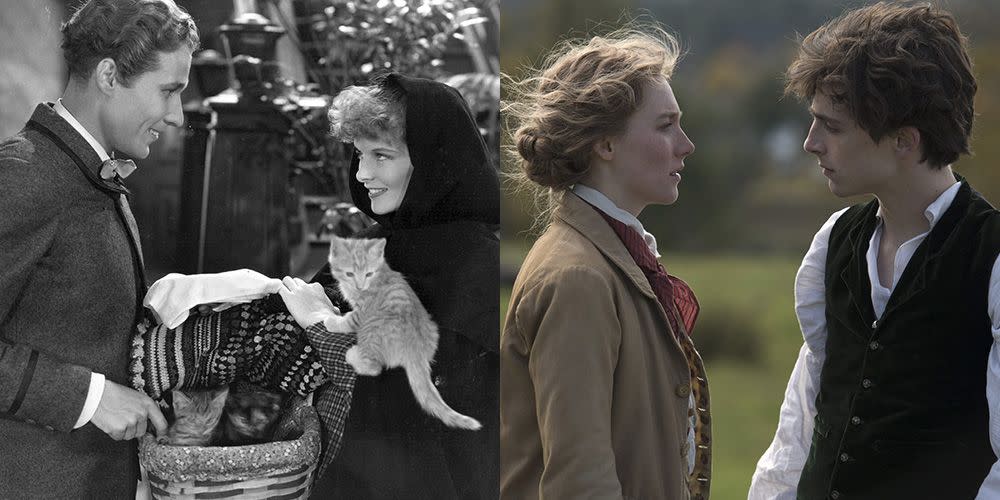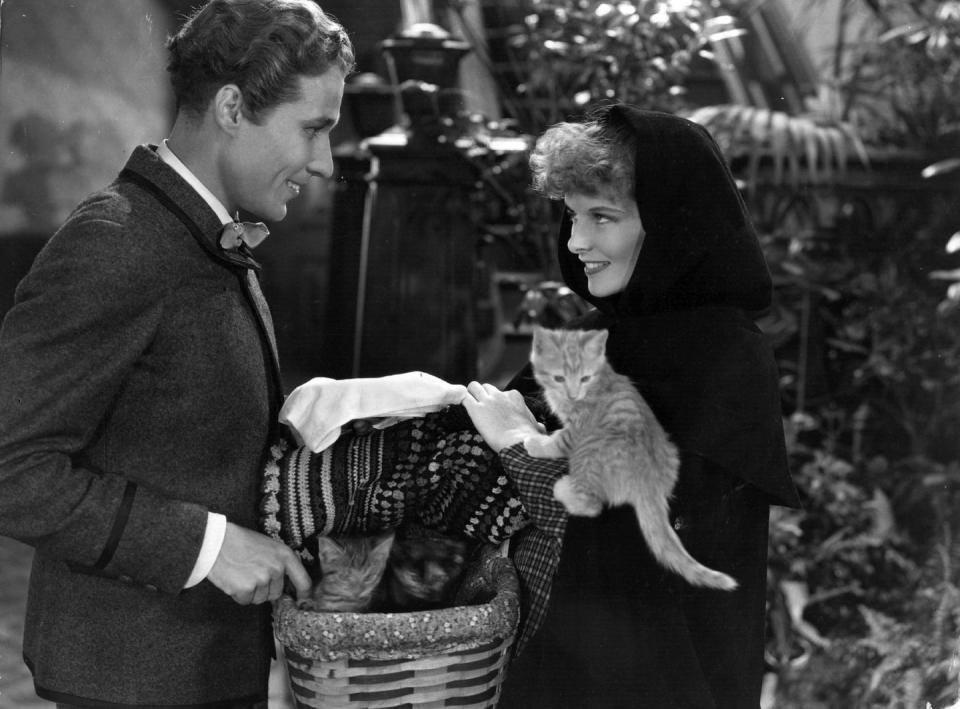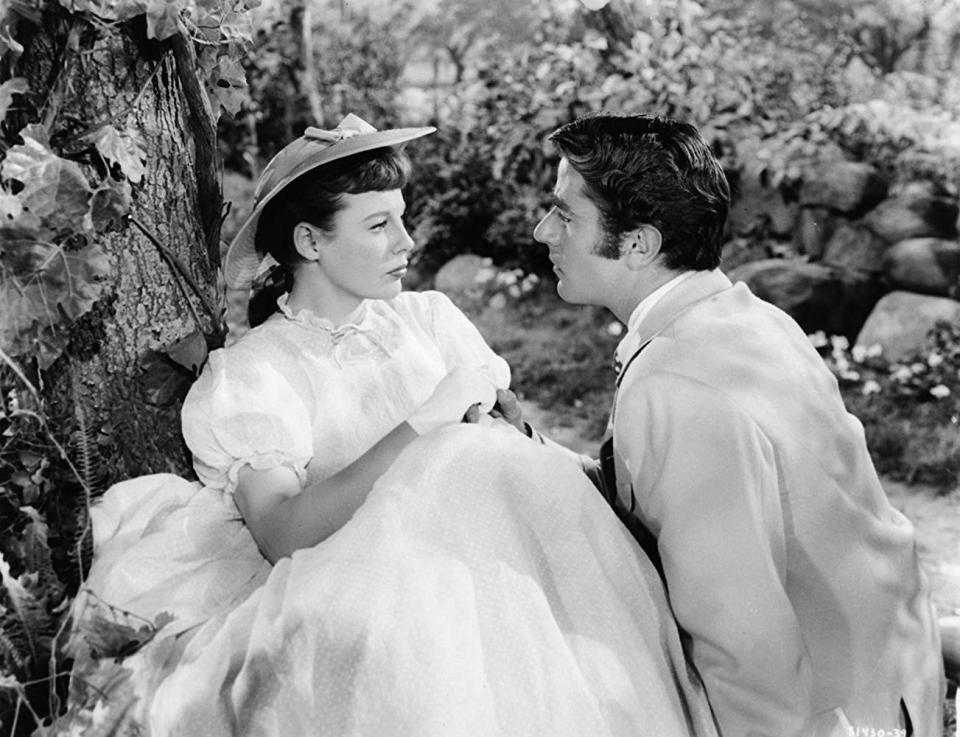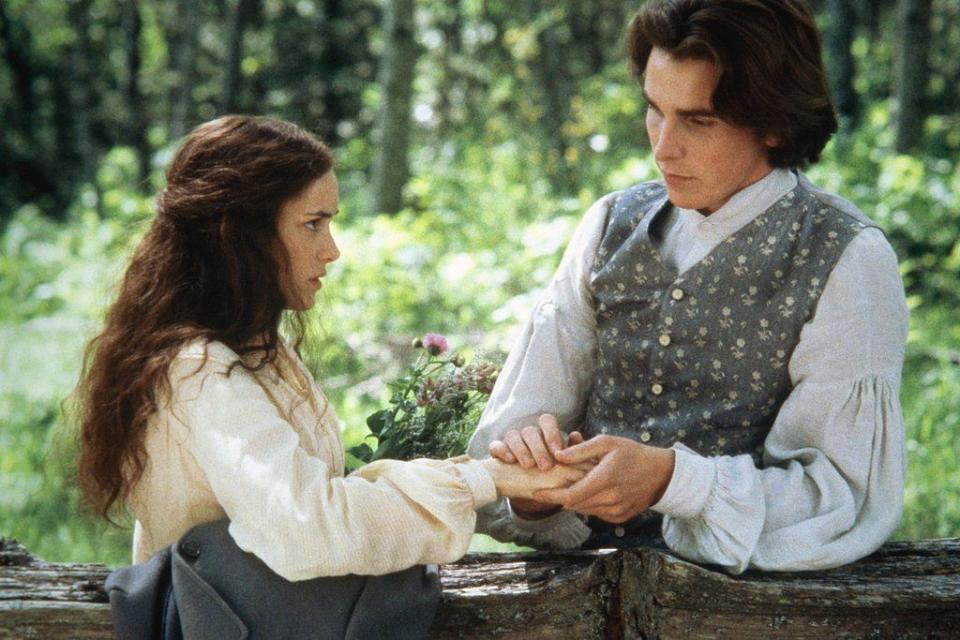Greta Gerwig Gave 'Little Women' a Totally Different Ending Than It Had in the Book

Greta Gerwig's 2019 version of the movie Little Women is the sixth adaption of the film, which is based on the novel by Louisa May Alcott.
The five previous versions came out in 1917, 1918, 1933, 1949, and 1994 and starred famous actresses such as Katharine Hepburn and Winona Ryder.
Each version of Little Women tells a slightly different story of the March sisters.
Screenwriters have been translating Louisa May Alcott's beloved novel Little Women into feature films for more than 100 years. The iconic story follows the March sisters — Jo, Meg, Beth, and Amy — as they grow up with their mother Marmee in Concord, Massachusetts. While their father is off fighting in the Civil War, the four girls are coming of age in a world where young women are meant to grow up, get married, and raise children.
But Jo, who wants to be a writer, rejects the idea that her life should center around finding a man to marry. While Meg starts a family, Beth suffers from scarlet fever, and Amy goes to art school in Paris, Jo turns down a proposal from her dearest friend, Laurie, and instead pursues a writing career in New York City. There she meets another man, Professor Bhaer, who challenges her intellectually — and eventually, they get married and start a school together.
Ever since director Greta Gerwig's version of the movie hit theaters last December, critics and fans alike have been abuzz about how she took the March sisters' story and so elegantly made it feel relevant and important in the present day. But the 2019 version of the film (which is up for six Academy Awards this Sunday) is far from the only book-to-movie adaptation of Little Women.
Here, we take a look back at how the March sisters' story has evolved over the course of its six movie versions.
1917: Ruby Miller as Jo
The first-ever movie version of Little Women was a silent film by British director Alexander Butler and was released in 1917, nearly 50 years after the book was originally published. This version starred "Gaiety girl" Ruby Miller as the principal character, but sadly, the film is considered to be "lost" today.
1918: Dorothy Bernard as Jo
Just one year after the original book-to-movie adaptation, a remake of Little Women was released by Paramount Pictures. British director Harley Knoles spearheaded this second silent movie, which starred Dorothy Bernard as Jo. Like the version before it, the 1918 Little Women is considered to be lost.
1933: Katharine Hepburn as Jo

In 1933, the first "talkie" version of Little Women was released, with Katharine Hepburn starring as Jo and Douglass Montgomery playing Laurie. Before Gillian Armstrong's take on the March sisters' story premiered in 1994, this version — directed by George Cukor — was widely considered a favorite and was nominated for three Oscars (including Best Picture). Also, because of the timing of the film's release, it was considered a sort of beacon of hope during the Depression Era.
1949: June Allyson as Jo

A fourth adaptation of Little Women arrived on the big screen in 1949, this time directed by Mervyn Leroy and starring June Allyson as Jo, Peter Lawford as Laurie, and a young Elizabeth Taylor as Amy. Despite the star-studded cast and modern Technicolor production, this version wasn't nearly as much of a hit as the Katharine Hepburn-led movie before it.
1994: Winona Ryder as Jo

Forty-five years passed between the previous remake of Little Women and this one, which stars Winona Ryder as Jo, Christian Bale as Laurie, and Susan Sarandon as Marmee. But it might have been well worth the wait: Many critics have called this version the best of all time (though it seems to be a tough call between it and the 2019 adaptation).
Notably, the 1994 movie version of Alcott's beloved novel was also the first to be directed by a woman, Gillian Armstrong. Winona also earned a Best Actress nomination at the Oscars for her performance.
2019: Saoirse Ronan as Jo

The newest adaptation of Little Women — which stars Saoirse Ronan as Jo, Timothée Chalamet as Laurie, and Laura Dern as Marmee, among many others — has been applauded by many for taking Louisa May Alcott's iconic story and twisting it to fit modern-day ideas about women like we've never seen before.
Director Greta Gerwig played with the timeline of the story, for example, making it less linear and instead switching between flashbacks and present-day scenes to create a greater emotional arc. She also made a slight change to the story's ending. Instead of Jo getting married to Professor Bhaer in real life (which is how the book ends), she actually remains single and childless, while the character in her book gets happily married.
"I wanted to give Louisa May Alcott an ending she might have liked," Gerwig recently told OprahMag.com.
For can't-miss news, expert beauty advice, genius home solutions, delicious recipes, and lots more, sign up for the Good Housekeeping newsletter.
You Might Also Like

 Yahoo Lifestyle
Yahoo Lifestyle 
